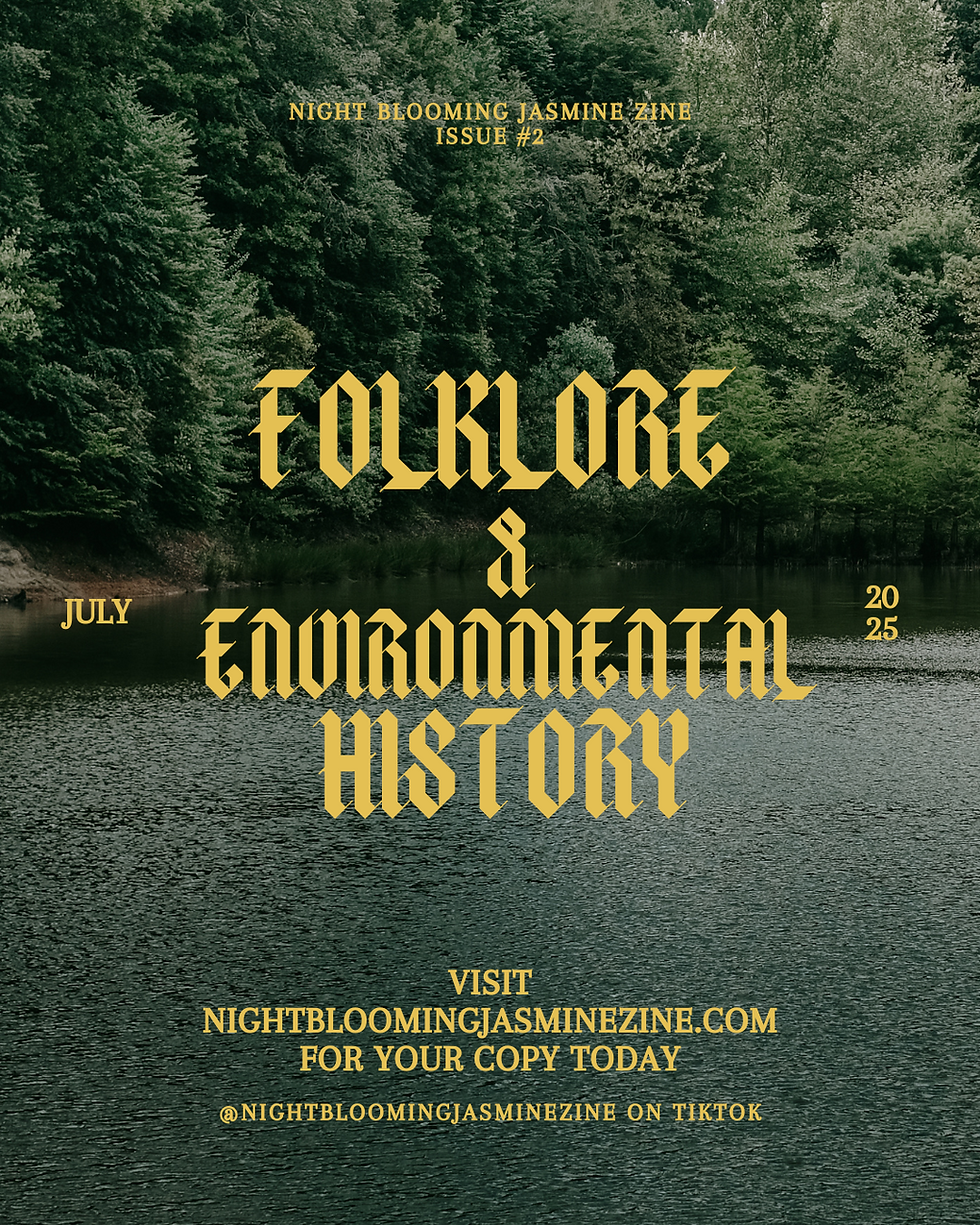Illuminating Indigenous Knowledge Through Folklore in Our Physical Zine's Third Issue: "Indigenous Folklore & The Anthropocene - The Bungling Host"
- elaine@nightbloomingjasminezine

- Aug 14, 2025
- 3 min read
In today's rapidly changing world, where climate change and environmental concerns dominate the discussion, the significance of indigenous knowledge has never been clearer. The third issue of our physical zine is titled "Indigenous Folklore & The Anthropocene - The Bungling Host," and it explores how indigenous narratives, specifically those shared in Daniel Clément's book, The Bungling Host: The Nature of Indigenous Oral Literature, can deepen our understanding of the natural world around us. This edition aims to highlight how these stories can enlighten our current environmental challenges and encourage more thoughtful approaches to sustainability and climate change mitigation.
The Anthropocene denotes an era where human influence significantly alters our Earth's climate and ecosystems. This period's challenges are daunting, but we can gain wisdom by revisiting the lessons embedded in indigenous folklore.
Understanding Indigenous Oral Literature
Indigenous oral literature represents much more than simple stories. It is a vibrant tradition that encapsulates the essences of belief, values, and knowledge passed through generations. Examining Clément's analysis reveals the intricate ways in which these stories derive meaning based on their cultural origins. Each narrative reflects the environment, social dynamics, and histories unique to the community it is from.
For example, the Bungling Host myths are enriched with humorous characters who often stumble through challenges. What may initially seem silly, holds themes about nature and human behavior. One tale tells of a character who mistakenly interacts with natural forces, which ultimately leads to harmony in the ecosystem. Such stories can foster a greater appreciation for ecological relationships and the consequences of our actions in real life.
The Role of Indigenous Folklore in Scientific Thinking
Clément argues powerfully that indigenous narratives can offer foundational insights into scientific thinking. By investigating the Bungling Host myths, we can discern elements, like biodiversity, that reflect on our present-day natural world.
Present-Day Relevance
As we grapple with complexities in the Anthropocene, creating a dialogue between indigenous knowledge and scientific methods is essential and just. Clément's analysis encourages readers to see the value in indigenous stories, recognizing their relevance in today's environmental issues.
Engaging with these narratives can enrich our understanding of climate and encourage deeper reflections about our human roles in climate change mitigation. This zine issue serves as a medium for sharing these stories, urging readers to consider how these lessons can apply to modern ecological initiatives that promote sustainability.
Uplifting Diverse Voices
Our third issue of the physical zine, "Indigenous Folklore & The Anthropocene - The Bungling Host," offers my perspective on The Bungling Host: The Nature of Indigenous Oral Literature. I believe this issue is an excellent primer, but I encourage readers to also find a copy of the book in order to craft your own conclusions.
The Bungling Host: The Nature of Indigenous Oral Literature invites you to delve into indigenous oral narratives through Daniel Clément’s thought-provoking lens. By revisiting stories like those in the Bungling Host, we can uncover essential lessons about our responsibilities toward the environment.
As we face pressing issues in the modern era, it is vital to embrace the wisdom contained within indigenous cultures and uplift the voices of the indigenous communities sharing their knowledge. These narratives not only provide insight into diverse worldviews but also present pathways toward a more sustainable future. I hope this issue motivates you to engage with these stories and reflect on their present-day relevance.
Ultimately, understanding these unique perspectives allows for a more inclusive and comprehensive approach to environmental solutions.
By exploring folklore, we shine a light on the intricate connections between culture, knowledge, and the environment. Join Night Blooming Jasmine Zine in the third issue of our physical zine, and let’s collectively ponder how these powerful narratives can guide us toward a more sustainable future.



Comments